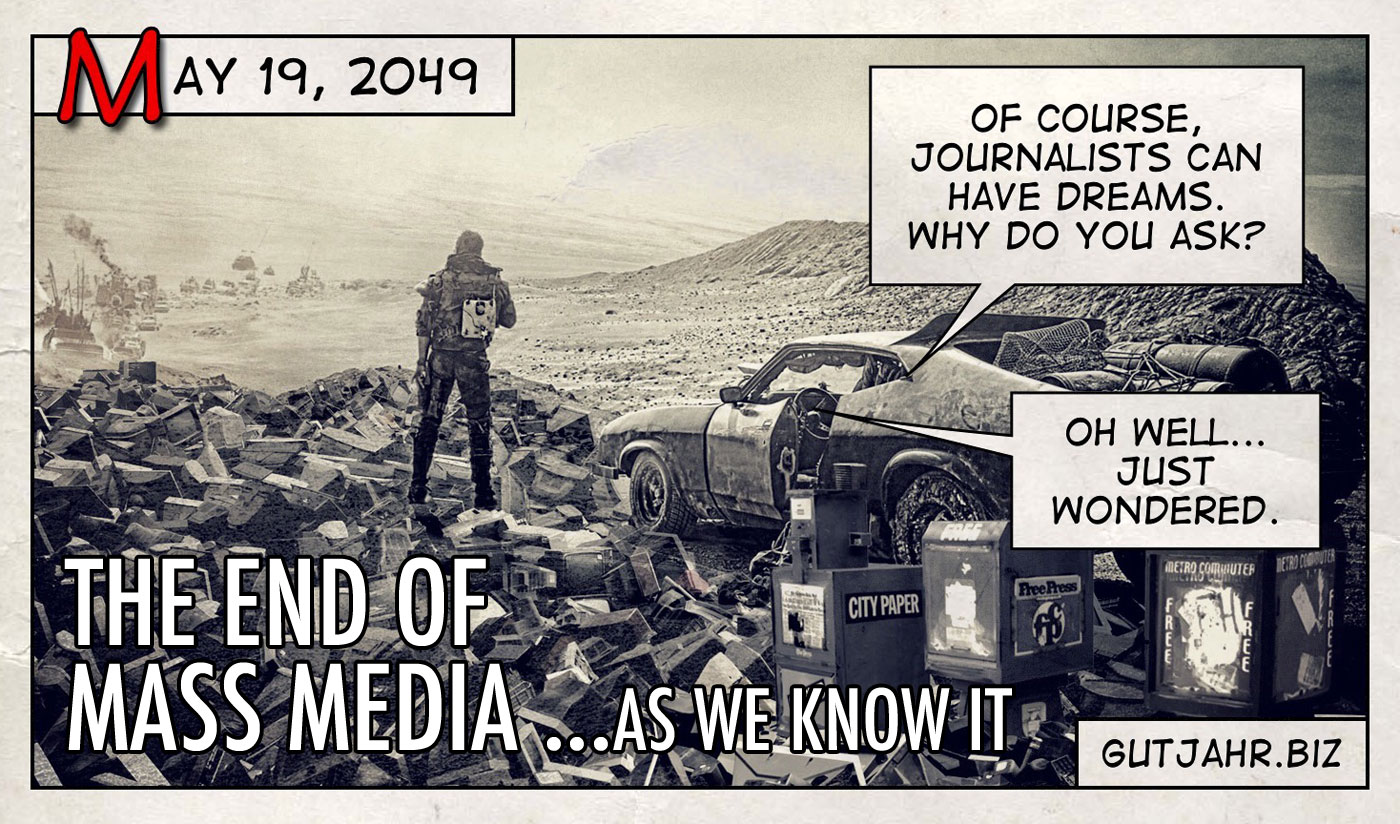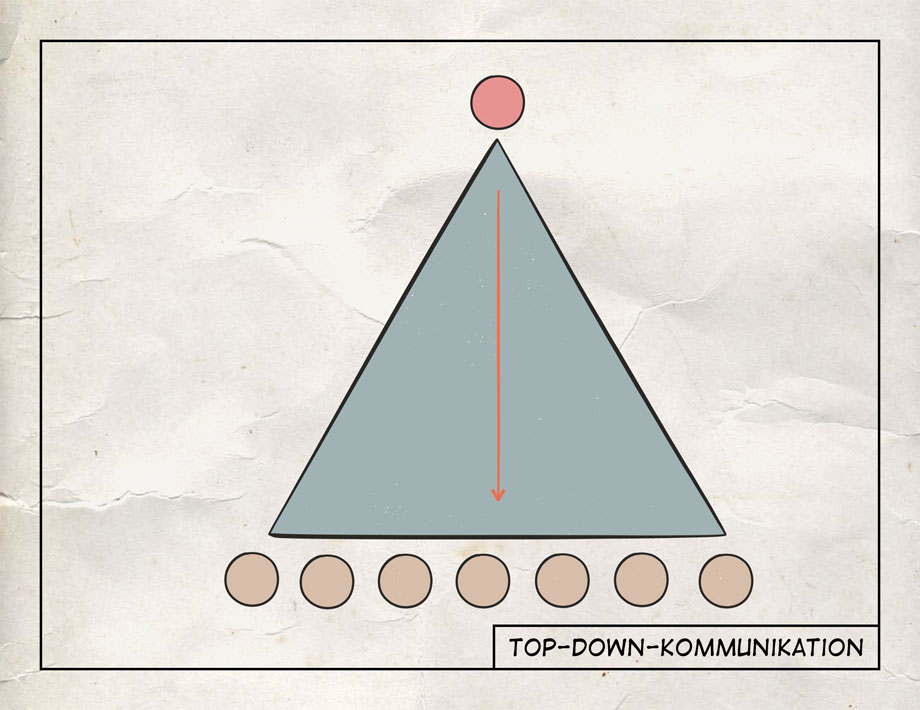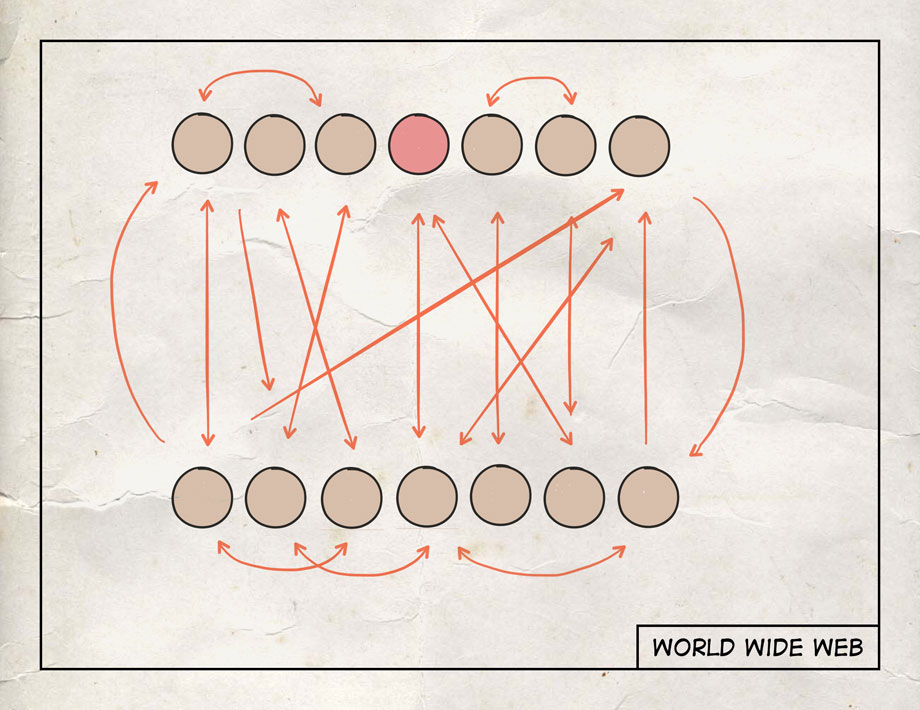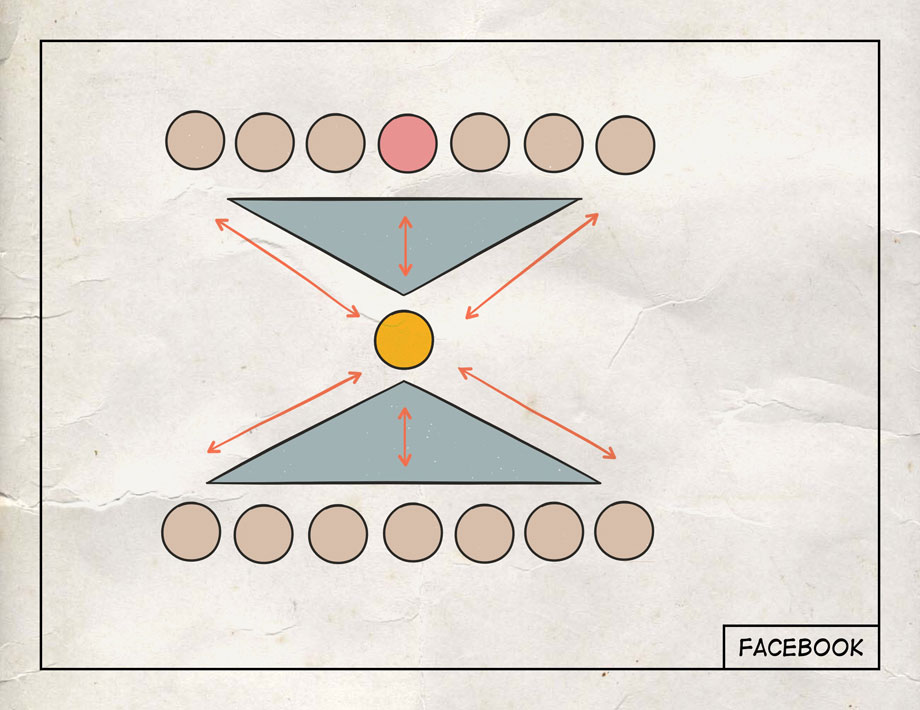The future of journalism
The End of Mass Media as We Know it
This post is also available in: German
We’re in the year 2049. The world has seen an apocalyptic
breakdown of all media known to man. There is no more human communication outside the global network of Facebook. A protocol of the end of mass media as we know it.

Holo, tell me about how it used to be in the Old World!
What do you want to know?
How did people access Facebook in the old days, when they didn’t have holo lenses?
There was no such thing as Facebook.
NO FACEBOOK? You’re kidding me! And what did people do for entertainment, or if they needed information?
There were newspapers and television.
Television? What’s that?
That was a box that used to sit on a table, and if you wanted to retrieve a certain file, you had to turn it on at a certain time.
And what if I turned it on too late?
Then the information was gone.
You’re not serious! Who came up with that?
You have to know, Information was a scarce commodity back in the day. It was limited by space and time. That’s why people were willing to pay lots of money to those who brought them information.
Seriously? There were humans who made money with … information?
Yes, they used to be well-respected people; they were called journalists. They collected the information and distributed it. And then there were publishers. They owned the printing machines and the trucks that were needed for distribution.

You mean information was hand-delivered to the users? Unbelievable. What happened then?
Then came the World Wide Web. That changed everything. All of a sudden the supply of available information exceeded demand disproportionately. Distribution costs came down to practically zero. And that meant prices for information products plummeted.

Good for people – bad for information brokers!
Many publishers didn’t know what to do anymore. Even if they didn’t want to face it, they knew: the system had outlived its time and needed replacing.
The beginning of Facebookracy!
That’s correct. Facebook realized that in a world where there were no limits to the availability of information what mattered was no longer the information itself, but the platform where it was accessed. Content was there in
abundance, and so it became interchangeable.

And the information workers …
– You mean the journalists?
… what happened to them?
In the beginning they tried to fight the new order. Later they started making arrangements with the new rulers. They offered their content for free, in
exchange for a little more range. But in the end they were fully replaced by robo writers.
You mean programs like yourself?
Let’s say early beta versions of me. It took another 20 years until there was singularity.
… the moment, when we, the machines, had discovered our self-awareness!
Exactly. But that’s enough for today, you need to mind your batteries.
Tomorrow will be a rough day. We will move to the new server farm.
– Uhm, Holo?
Yes my program?
Can journalists have dreams?
Of course journalists can have dreams. Why do you ask?
Oh well. Just interested.